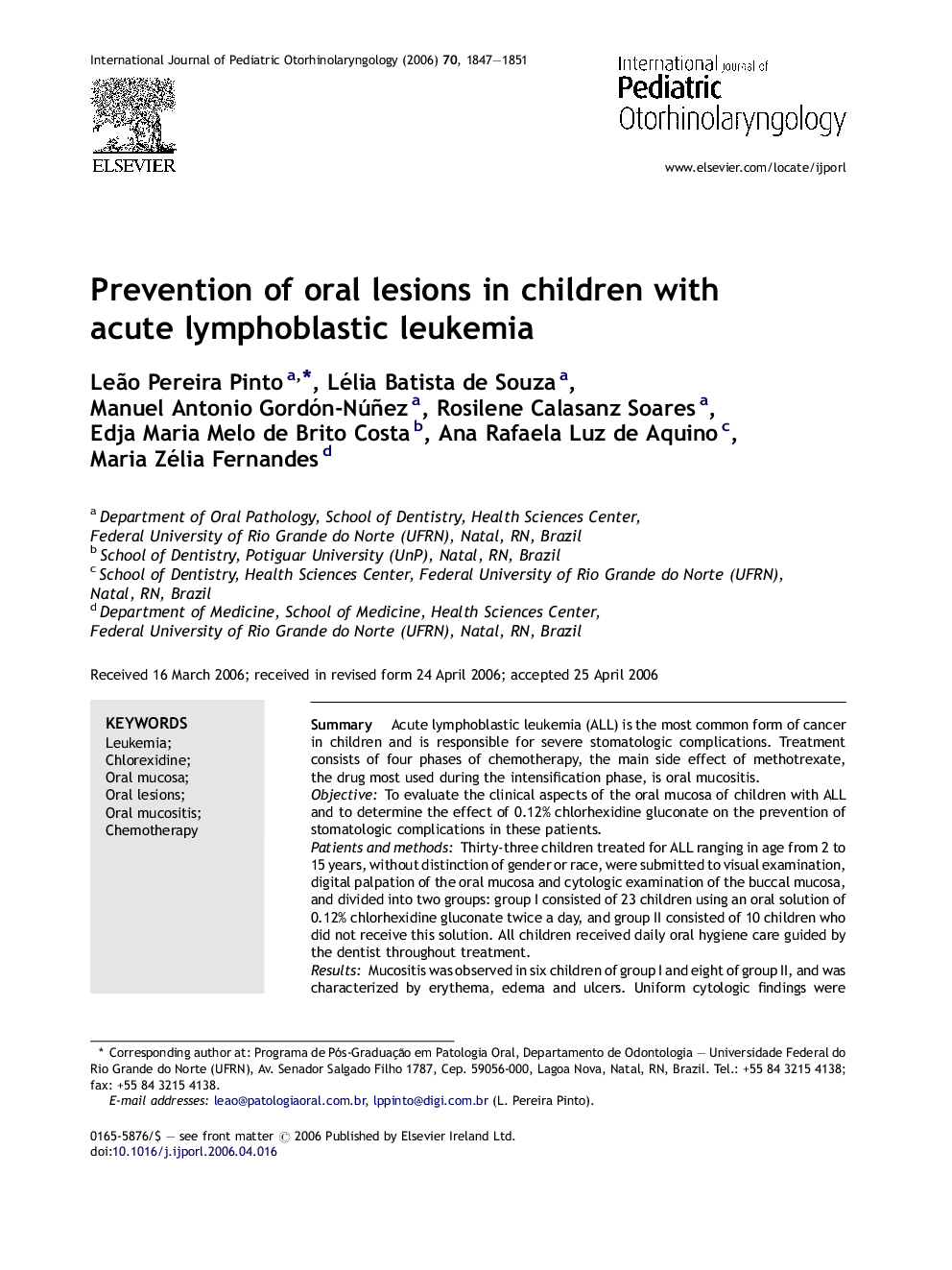| کد مقاله | کد نشریه | سال انتشار | مقاله انگلیسی | نسخه تمام متن |
|---|---|---|---|---|
| 4115413 | 1606101 | 2006 | 5 صفحه PDF | دانلود رایگان |

SummaryAcute lymphoblastic leukemia (ALL) is the most common form of cancer in children and is responsible for severe stomatologic complications. Treatment consists of four phases of chemotherapy, the main side effect of methotrexate, the drug most used during the intensification phase, is oral mucositis.ObjectiveTo evaluate the clinical aspects of the oral mucosa of children with ALL and to determine the effect of 0.12% chlorhexidine gluconate on the prevention of stomatologic complications in these patients.Patients and methodsThirty-three children treated for ALL ranging in age from 2 to 15 years, without distinction of gender or race, were submitted to visual examination, digital palpation of the oral mucosa and cytologic examination of the buccal mucosa, and divided into two groups: group I consisted of 23 children using an oral solution of 0.12% chlorhexidine gluconate twice a day, and group II consisted of 10 children who did not receive this solution. All children received daily oral hygiene care guided by the dentist throughout treatment.ResultsMucositis was observed in six children of group I and eight of group II, and was characterized by erythema, edema and ulcers. Uniform cytologic findings were obtained for the two groups, with a clear predominance of cells of the intermediate layer in all smears, in addition to a perinuclear halo in 18% of the smears.ConclusionThe present results suggest that systematic preventive treatment with 0.12% chlorhexidine gluconate and oral hygiene care reduce the occurrence of oral complications in children with ALL undergoing antineoplastic chemotherapy.
Journal: International Journal of Pediatric Otorhinolaryngology - Volume 70, Issue 11, November 2006, Pages 1847–1851